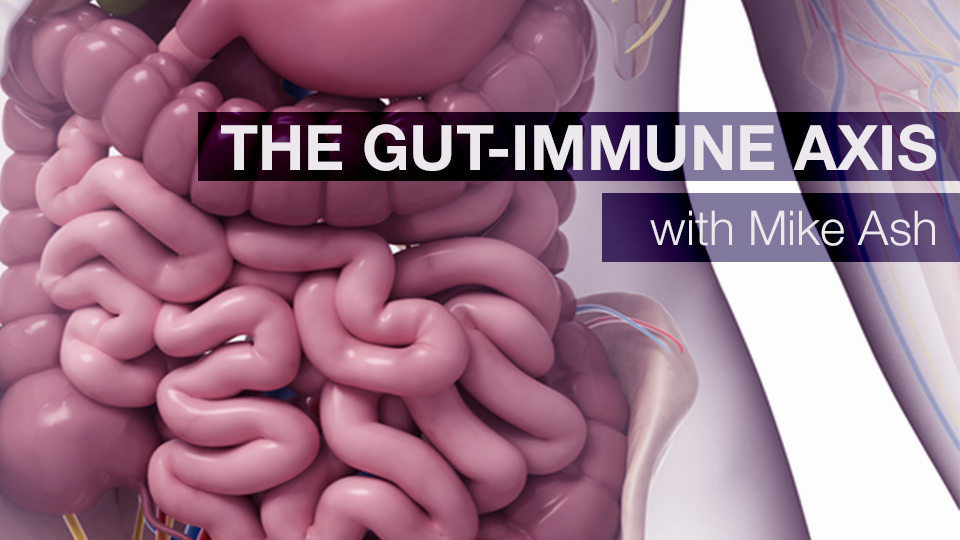Alinda Boyd ● 5 min read
The importance of a healthy digestive system has long been recognised by complementary health professionals including naturopaths and herbalists. This concept is not new however, with Hippocrates, regarded as the father of medicine, reportedly stating that “all disease begins in the gut” over 2000 years ago.
Importance of healthy digestion
Most of us are aware that our digestive system helps to break down the nutrients from our food and absorb them into our bloodstream. But did you know that our digestive system also helps to make certain vitamins, eliminate waste and neurotransmitters, as well as support our immune system?[1-4] Amazingly, our digestive system can also communicate with our brain, with researchers investigating the link between gut and mental health.[5] Maintaining a healthy digestive system is therefore vitally important to ensure overall health and wellbeing.
When things go wrong
Digestive complaints are a common presentation in patients who visit complementary healthcare practitioners, with symptoms such as heartburn, stomach pain, bloating, flatulence, diarrhoea and constipation commonly experienced. Too often patients put up with these symptoms, mistakenly thinking they are a normal and unavoidable part of their lives.
These symptoms may in fact be avoidable and often arise due to poor diet, inadequate fluids, parasitic or bacterial infections, poor stomach acid production, reduced enzyme activity, changes in the levels of beneficial bacteria including SIBO (small intestinal bacterial overgrowth), food allergies and intolerances, obesity and/or a sedentary lifestyle. Identifying the cause of these digestive issues is key to bringing your digestive system back into balance, and your complementary healthcare practitioner can assist you in identifying these triggers and prescribing appropriate herbal and nutritional supplements to optimise your digestive health.

RELATED PODCAST - The Gut-Immune Axis with Mike Ash, originally recorded 2015
Herbs and nutrients that can help
Herbal medicines and specific nutrients can be used to not only reduce digestive symptoms but also to enhance digestive function. These herbs and nutrients can help to stimulate gastric fluids to enhance the breakdown of foods, reduce bloating and excess gas, support digestive enzyme production, reduce inflammation and irritation, stimulate bile secretion, and provide bulk to regulate the bowels.
Important nutrients for gastrointestinal health include:[6-8]
- B vitamins. Thiamine (vitamin B1) is essential for carbohydrate metabolism and is beneficial for some digestive disturbances. Riboflavin (vitamin B2) is needed to support the integrity of mucous membranes. Niacin (Vitamin B3) plays a key role in releasing energy from food. Pantothenic acid (vitamin B5) is essential for the metabolism of proteins, lipids and carbohydrates. Pyridoxine (vitamin B6) plays a role in lipids, carbohydrate and protein metabolism. A sign of folate/folic acid (vitamin B9) deficiency is loss of appetite, diarrhoea and gastrointestinal disturbances. Loss of appetite and nausea are symptoms of Cobalamin (vitamin B12) deficiency.[8]
- Glutamine plays a crucial role in the digestive system. The intestinal mucosal cells rely on glutamine as a key fuel and the intestinal lining is maintained by glutamine.[10] Glutamine has demonstrated in animal studies that it has the ability to reduce intestinal permeability[4] and in vitro and in vivo evidence shows glutamine assists in the repair and production of intestinal cells.[10]
- Vitamin A is vital for maintaining the integrity of epithelial cells/tissues.[8] Epithelial cells/tissues line our organs and glands.
- Vitamin C is needed for the metabolism of carbohydrates and has a fundamental role in the production of collagen.[8] Vitamin C is essential for the maintenance of connective tissue and collagen stability. One sign of vitamin C deficiency is having a poor appetite.[11]
- Vitamin D plays a key role in the maintenance of the epithelial cells, which assists in the absorption of all vitamins and minerals.[4] People with gastrointestinal disorders have been found to have lower levels or be deficient in vitamin D, due to poor vitamin D absorption.[4]
- Zinc is an essential mineral for optimal digestive health. Zinc has multiple key roles in our digestive system, one includes being essential for the synthesis of enzymes in the gastrointestinal tract. Having a zinc deficiency can significantly impact our digestive health by causing hyper-permeability of the small intestine wall and poor healing of mucous membranes.[4] Zinc deficiency can cause abnormalities in the gastrointestinal tract.[12]
Herbal medicines that may benefit digestive function are detailed below.[4,9]
- Bitters stimulate and improve the function of the digestive system and are beneficial for low appetite and sluggish digestion. Herbs include Dandelion, Gentian and Globe Artichoke.
- Carminatives relax intestinal sphincter muscles to relieve excess flatulence and gastrointestinal spasms and pain. Herbs include Fennel, Lemon Balm and Ginger.
- Cholagogues stimulate gallbladder contraction aiding bile flow and release of stored bile. Herbs include Dandelion root, Gentian, and Globe Artichoke
- Choleretics act on the liver stimulating the production of bile. Herbs include Andrographis, Turmeric and St Mary’s Thistle.
- Demulcents soothe the digestive tract to help with gastrointestinal inflammation. Herbs include Marshmallow, Licorice and Slippery Elm.
- Digestive antispasmodics or spasmolytic herbs help to decrease cramping in the gastrointestinal tract. Herbs include Peppermint, Chamomile and Fennel.
Herbal medicines for digestive wellness
- Chamomile
- Dandelion root
- Fennel
- Gentian
- Ginger
- Globe artichoke
- Lemon balm
- Licorice
- Marshmallow
- Peppermint
- St Mary’s Thistle
- Slippery elm
- Turmeric
References
- Krom, Z. Structure and function of the gastrointestinal system. In: Grossman, S. C. & Porth, C. M. Porth’s Pathophysiology: Concepts of Altered Health States, 9th ed (pp.1150-69). Philadelphia: Walters Kluwer Health | Lippincott Williams & Wilkins, 2014 [Source]
- Dinan, T. G. & Cryan, J. F. The Microbiome-Gut-Brain Axis in Health and Disease. Gastroenterol Clin North Am 2017 Mar;46(1):77-89. Epub 2017 Jan 4 [Abstract]
- Palm, N. W., de Zoete, M. R., & Flavell, R. A. Immune-Microbiota Interactions in Health and Disease. Clin Immunol 2015 Aug;159(2):122-127 [Abstract]
- Frawley, J. The Gastrointestinal System. In: Hechtman, L. Clinical Naturopathic Medicine (pp.152-209). Chatswood: Churchill Livingstone Elsevier, 2014[Source]
- Wang, H. X. & Wang, Y. P. Gut Microbiota-Brain Axis. Chin Med J (Engl) 2016;129(19):2373-80[Abstract]
- Duggan, C., Gannon, J., & Walker, W. A. Protective Nutrients and Functional Foods for the Gastrointestinal Tract. Am J Clin Nutr 2002;75(5):789-808.[Abstract]
- Del Pinto, R., Ferri, C. & Cominelli, F. Vitamin D Axis in Inflammatory Bowel Diseases: Role, Current Uses and Future Perspectives. Int J Mol Sci 2017;18(11):2360[Abstract]
- Kirk, D. Nutritional Medicine. In: Hechtman, L. Clinical Naturopathic Medicine (pp.48-102). Chatswood: Churchill Livingstone Elsevier, 2014 [Source]
- Sinclair, J. & Hechtman, L. Herbal Medicine. In: Hechtman L. Clinical Naturopathic Medicine (pp.103-49). Churchill Livingstone Elsevier, 2014 [Source]
- Braun L, Cohen M. Herbs and natural supplements: an evidence-based guide, 4th ed. L-glutamine (pp. 631-643) Sydney: Churchill Livingstone Elsevier, 2015 [Source]
- Braun L, Cohen M. Herbs and natural supplements: an evidence-based guide, 4th ed. Vitamin C (pp. 1101-1123) Sydney: Churchill Livingstone Elsevier, 2015 [Source]
- Braun L, Cohen M. Herbs and natural supplements: an evidence-based guide, 4th ed. Zinc (pp. 1197-1223) Sydney: Churchill Livingstone Elsevier, 2015 [Source]
- Hatton, G. B., Madla, C. M. & Rabbie, S. C., et al. All Disease Begins in the Gut: Influence of Gastrointestinal Disorders and Surgery on Oral Drug Performance. Int J Pharm 2018;548(1):408-422[Abstract]
DISCLAIMER:
The information provided on FX Medicine is for educational and informational purposes only. The information provided on this site is not, nor is it intended to be, a substitute for professional advice or care. Please seek the advice of a qualified health care professional in the event something you have read here raises questions or concerns regarding your health.



